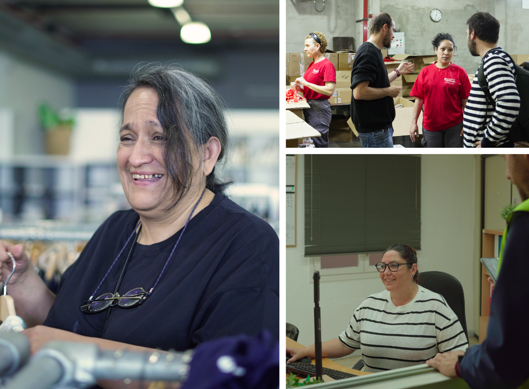This year, 2023, being the European Year of Skills, it seems only fair to dedicate this article writing about those groups who have often been excluded from the labour market; women, youth and vulnerable groups such as the Rroma community, taking this opportunity to recognise their achievements on a European level.
In recent years, there has been a notable shift towards fostering greater inclusion and diversity in the labour market. Efforts to activate and empower women, young people, and vulnerable groups have gained significant momentum, leading to positive socio-economic transformations. Although we have certainly faced several backlashes the most recent being the Covid19 crisis, we believe there has been a gradual green and digital transition towards economic recovery.
Having said this, this article explores the remarkable progress made in engaging these segments of society in the workforce and the resulting benefits for individuals, communities, and the broader economy.
On the one hand, let’s talk about those who compose more than half our population yet often meet barriers when entering the labour force; women. In many parts of the world, women have historically faced numerous barriers to accessing the labour market on equal terms with men. However, a significant shift has occurred in recent years. More women are now participating in the workforce, and their representation in traditionally male-dominated industries and leadership positions is steadily increasing. This upward trajectory can be attributed to a combination of factors such as improved access to education, changing societal norms, and gender-mainstreaming.
On the other hand, recognizing the immense potential of young people, efforts have been made to enhance their participation in the labour market. Governments, educational institutions, and private organizations have implemented initiatives to equip young individuals with relevant skills and provide them with employment opportunities. Entrepreneurship programs, vocational training, and internships have played a pivotal role in enabling young people to acquire valuable experience, build networks, and contribute to economic growth.
This is precisely what we are aiming for in our project Sepal Pro shifting the mindset from the belief that young people who are not currently working or studying are “lazy”, thus victim blaming, to taking responsibility from a macro and state level. In Europe, there has most certainly been a shift towards using the term “NEET” in a more positive and proactive manner. Instead of focusing solely on the negative aspects of being disconnected from education, employment, or training, the emphasis has been placed on providing support and opportunities for young people in this situation.
Without doubt, by integrating the youth into the labour market, societies are not only unlocking their talent but also fostering innovation and long-term sustainability.
Another crucial aspect of inclusive labour market activation involves empowering vulnerable groups such as individuals with disabilities, refugees, and those from marginalized communities (such as the Rroma community). Recognizing the inherent talent and potential within these groups, governments and organizations have initiated inclusive hiring practices, tailored training programs, and workplace accommodations to facilitate their integration. Many European projects like Sepal Pro work towards eliminating discriminatory practices and offering equal opportunities. In this sense, bit by bit, societies are bridging the socio-economic divide, promoting social cohesion, and fostering a sense of belonging among these marginalized individuals.
In conclusion, the activation of more women, young people, and vulnerable groups in the labour market yields significant benefits at various levels. For individuals, increased employment opportunities lead to enhanced financial independence, improved self-esteem, and the ability to contribute to their families and communities. At the community level, a diversified workforce fosters creativity, innovation, and a broader range of perspectives, leading to better decision-making and problem-solving. From an economic standpoint, increased labour force participation translates into higher productivity, greater competitiveness, and a boost to overall GDP growth.
Therefore, let us celebrate the European Year of Skills together, spread the word and continue working towards a more inclusive society. By breaking down barriers, challenging stereotypes, and implementing supportive policies, societies are realizing the potential of previously untapped talent pools.
Fundacion Privada Pere Closa´s Team!


